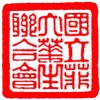Chinese Student Association: Difference between revisions
No edit summary |
No edit summary |
||
| (21 intermediate revisions by 8 users not shown) | |||
| Line 1: | Line 1: | ||
[[Category: UP Diliman]] [[Category: Student Organizations]] | |||
[[Image:UPCSA.jpg|200px|thumb|right|The official seal and logo of the Chinese Student Association]] | |||
==History== | |||
'''UP Chinese Student Association''' (CSA) was founded on June 23, 1963 by a group of students who saw the need for a Chinese | |||
Filipino organization which would pave the way for interaction and cultural exchange. | |||
Since then, UP CSA has grown not only into a cultural organization but also into a socio-civic and academic one. The association has helped members find their identity, students of different backgrounds have been brought together, and a deep sense of unity has been created within its members-all forming a tight-knit community who share in their respect and interest for the Chinese culture. | |||
The association's goal is to foster a more meaningful relationship between the Chinese and Filipino people. It seeks to promote a cultural exchange between both and to heighten our fellow students' awareness of the Chinese culture. It aims to encourage concern over problems of the Chinese community and enhance fraternal cooperation among them. | |||
==Officers== | |||
The Executive Council for the School Year 2011-2012 are: | |||
President: Juliane Sydel L. Tan<br /> | |||
Vice-President: Jewel Anne T. Kho<br /> | |||
Secretary-General: Bernette Maxine M. Choa<br /> | |||
Finance Officer: Katherine Chelsea C. Hwang<br /> | |||
Research and Academics Committee Chairperson: Andrew Vincent S. Yap<br /> | |||
Public Relations Committee Chairperson: Kreeshia T. Share<br /> | |||
Cultural and Socials Committee Chairperson: Edgene T. Dy<br /> | |||
[[ | The following are the organization's advisers: | ||
Dr. Michael Tan<br /> | |||
Dr. [[Jose Wendell P. Capili]] | |||
==Members== | |||
UP CSA's active membership roster has recently been at about 100 members from different colleges of the University of the Philippines Diliman branch. While most members are from Chinese schools, there have been and there still are Filipino members in the roster who are interested in the Chinese culture as well as maintaining the bond between both the Filipino community and the Chinese community. | |||
Application for membership inside the organization requires finishing a strict but rewarding application process. The application process consists of knowing the members through signature sheets, hanging out at the organization's ''tambayan,'' thorough knowledge of the organization's constitution and other related activities. | |||
==Activities== | |||
Cultural events, like the Moon cake festival and Chinese New Year are the association's main activities. Dice games, lion dances and dimsum eating contests among others are held for the whole campus to partake in. Educational and enlightening talks regarding Chinese culture and beliefs are featured during the Alternative Class Learning Experience (ACLE). Rummage sales, bake sales and clothing sales are done each year to raise funds while teaching cooperation and strengthening the bond between members. With continuous support from the organization's alumni, these projects have paved a better way for interaction and cultural exchange. | |||
==See Also== | |||
* [https://www.facebook.com/upcsa UP CSA on Facebook] | |||
Latest revision as of 11:15, 14 December 2011

History
UP Chinese Student Association (CSA) was founded on June 23, 1963 by a group of students who saw the need for a Chinese Filipino organization which would pave the way for interaction and cultural exchange.
Since then, UP CSA has grown not only into a cultural organization but also into a socio-civic and academic one. The association has helped members find their identity, students of different backgrounds have been brought together, and a deep sense of unity has been created within its members-all forming a tight-knit community who share in their respect and interest for the Chinese culture.
The association's goal is to foster a more meaningful relationship between the Chinese and Filipino people. It seeks to promote a cultural exchange between both and to heighten our fellow students' awareness of the Chinese culture. It aims to encourage concern over problems of the Chinese community and enhance fraternal cooperation among them.
Officers
The Executive Council for the School Year 2011-2012 are:
President: Juliane Sydel L. Tan
Vice-President: Jewel Anne T. Kho
Secretary-General: Bernette Maxine M. Choa
Finance Officer: Katherine Chelsea C. Hwang
Research and Academics Committee Chairperson: Andrew Vincent S. Yap
Public Relations Committee Chairperson: Kreeshia T. Share
Cultural and Socials Committee Chairperson: Edgene T. Dy
The following are the organization's advisers:
Dr. Michael Tan
Dr. Jose Wendell P. Capili
Members
UP CSA's active membership roster has recently been at about 100 members from different colleges of the University of the Philippines Diliman branch. While most members are from Chinese schools, there have been and there still are Filipino members in the roster who are interested in the Chinese culture as well as maintaining the bond between both the Filipino community and the Chinese community.
Application for membership inside the organization requires finishing a strict but rewarding application process. The application process consists of knowing the members through signature sheets, hanging out at the organization's tambayan, thorough knowledge of the organization's constitution and other related activities.
Activities
Cultural events, like the Moon cake festival and Chinese New Year are the association's main activities. Dice games, lion dances and dimsum eating contests among others are held for the whole campus to partake in. Educational and enlightening talks regarding Chinese culture and beliefs are featured during the Alternative Class Learning Experience (ACLE). Rummage sales, bake sales and clothing sales are done each year to raise funds while teaching cooperation and strengthening the bond between members. With continuous support from the organization's alumni, these projects have paved a better way for interaction and cultural exchange.


